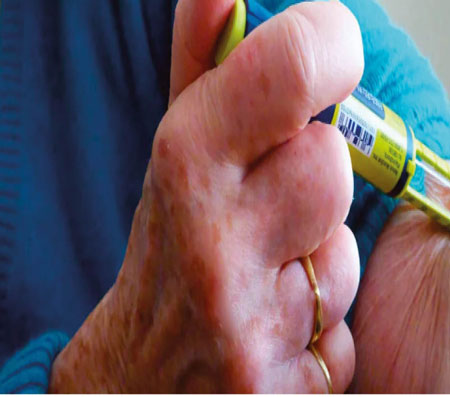Joan Slatkin/UCG/Universal Images Group via Getty Images Researchers investigated whether they can reprogram pancreatic stem cell-like cells into insulin-producing beta-cells for potential diabetes treatment.
They found that the genes that regulate insulin expression could be reactivated by using a drug previously investigated for treating patients with lymphomas and multiple myeloma.
The research findings suggest a possible new treatment option for diabetes patients who rely on daily insulin injections.
According to the World Health Organization, there are around 422 millionTrusted Source people with diabetes globally, with some researchers estimating that the figure will reach 700 millionTrusted Source by 2045. In the United States, approximately 1 in 10Trusted Source people had diabetes in 2018, which makes diabetes the nation’s seventhTrusted Source leading cause of death.
There are two major types of diabetes: Type 1 (formerly known as insulin-dependent or juvenile diabetes) – The body does not produce the hormone insulin or makes very little of it. This form of diabetes is more common in children and young adults.
Type 2 (formerly known as adult-onset diabetes) – The body does not produce enough or cannot properly use insulin.
It is the most common form of diabetes (90–95% of all cases) and often begins later in life.
Insulin-producing beta-cells typically make up 50-70% of pancreatic islets (groups of cells in the pancreas). In both types of diabetes, there is a significant reduction in beta-cells primarily due to autoimmune destruction.
Individuals with Type 1 diabetes, and some people with Type 2 diabetes, must take insulin injections daily to survive. The alternative is whole pancreas or pancreatic islet transplantation, which is limited by the shortage of organ donors and the associated side effects of immunosuppressants.
Research into the regeneration of insulin-producing beta-cells could lead to developing a new therapy for individuals who rely on insulin injections.
In a recent study, the human epigenetics team at Monash University in Melbourne, Australia, found that the investigational drug GSK-126 can potentially restore insulin-producing beta-cells in Type 1 diabetes patients by inhibiting pancreatic EZH2.
The study appears in the Nature journal, Signal Transduction and Targeted TherapyTrusted Source.










